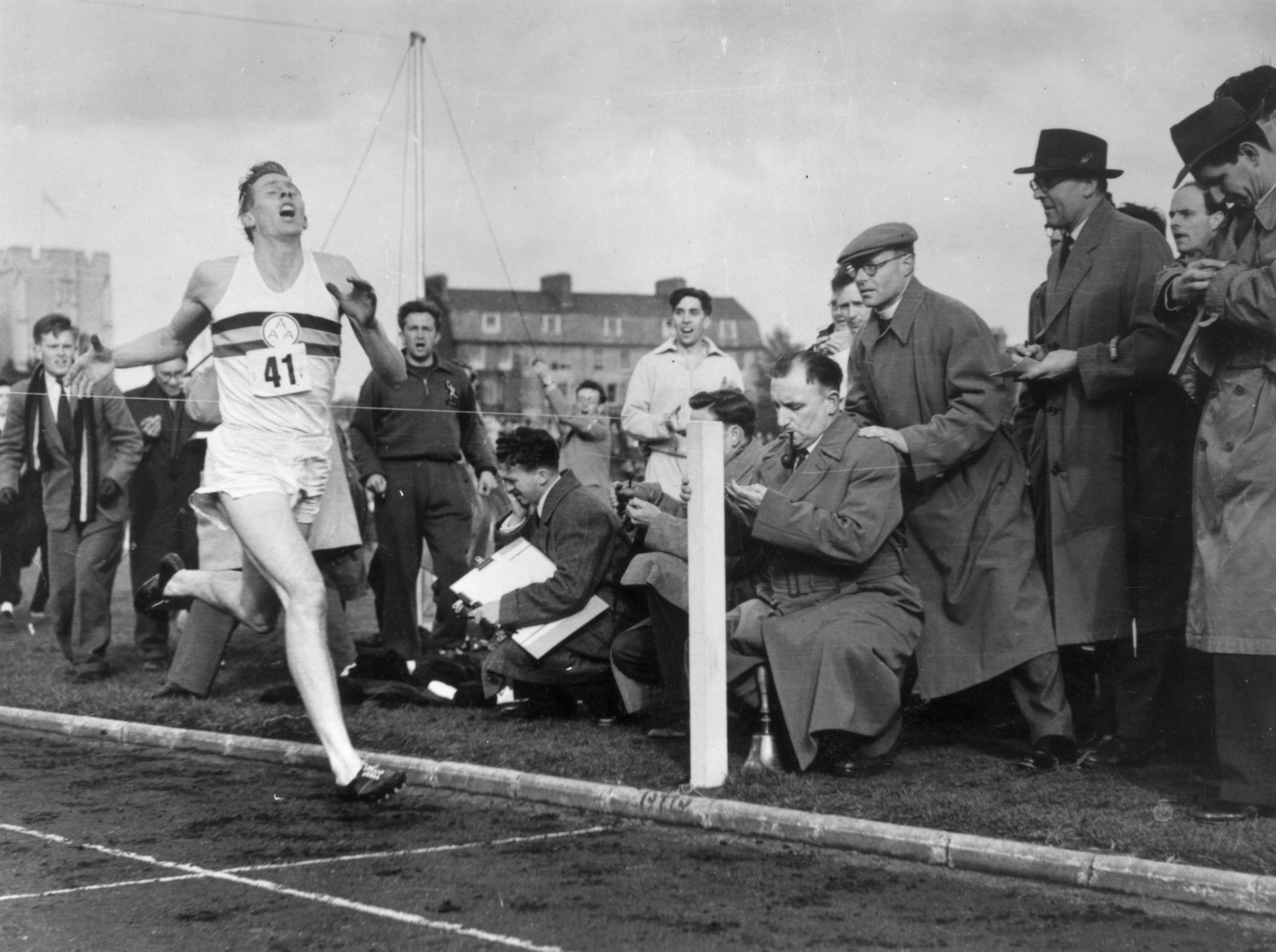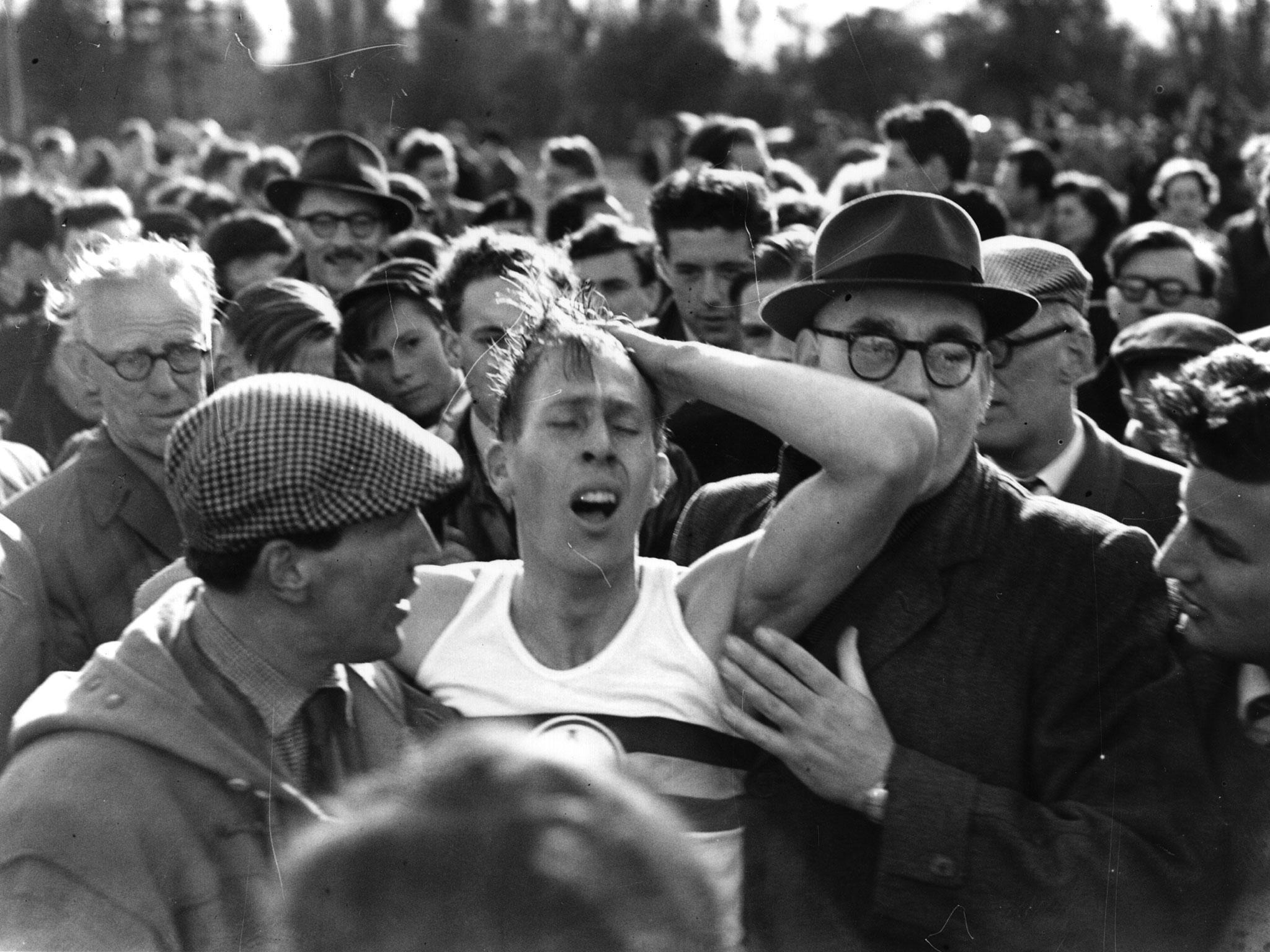Remembering Sir Roger Bannister: Pioneer, athlete, academic and doctor always running towards greatness
He was a groundbreaker both on and off the track

Perhaps the greatest tribute one can pay Sir Roger Bannister, who died on Saturday aged 88, is that there will never be another athlete like him.
Not only was Bannister a supreme runner, becoming the first man to run a mile in under four minutes, he was also a sports science pioneer who used knowledge gleaned from his medical studies at Oxford University to optimise his training schedule and shave seconds off his time – eventually coming in at six-tenths of a second under the magic number.
Within a year, Bannister had given up athletics to pursue a successful career as a neurologist but he never gave up running. It was one thing that always came naturally to him.
“Running was a kind of a magic,” he told the Mail on Sunday in 2015. “It was the concatenation of different experiences that I enjoyed. The open air, the countryside, the birds, the sunshine and all these added to the pleasure of running which for me never felt difficult.
“Of course, the last 200 metres of the four-minute mile was difficult and was hard. But the training was a pleasure and I had, from the age of seven or eight, always been in a hurry and always been impatient and in a way those basic instincts within me, the pleasure of the sensation of the movement in relation to the countryside and the ease with which I could undertake it, those factors fed in.”
Sir Roger’s success came at a time when athletics was a different beast to the publicly-funded machine of the 21st century. Running was, fundamentally, just something Bannister enjoyed doing and was very good at.
His success was born from failure. At the 1952 Olympics in Helsinki he was beaten to gold. Spurred on by the criticism that followed, Bannister found himself engaged in a three-way international battle to break through the four-minute barrier. A battle he would win.
In 2018, two major sportswear brands are working in laboratories to do everything possible to help one of their athletes run a marathon in under two hour – the next milestone athletic achievement. Every record attempt is planned with military precision. Bannister had only his own medical knowledge, some pacesetters and an incessant urge to run.

Phil Knight, the founder of one of those record-chasing brands, Nike, credits Bannister with inspiring him to start the company. He has also said that a Vancouver race involving Bannister and John Landy was the greatest sporting event he has ever seen.
The significance of the four-minute mile may be somewhat lost to younger generations but this was post-war Britain, where rationing had only just disappeared and pursuits of great achievement – most notably reaching the summit of Mount Everest or the South Pole – were positive, life-affirming quests that captured the imagination of the general public. Indeed, a 2016 BBC documentary on Bannister’s achievement was fittingly titled Everest on the Track.
Bannister’s historic race was ultimately a race within a race. The Australian John Landy – who would go on to break Bannister’s record within weeks – and American Wes Santee were also desperate to break the record and as the wind refused to abate on 6 May, 1954, there was some feeling that it simply wouldn’t be the right day for Bannister.
The St George’s flag that had been flying horizontally on a nearby church tower would fall limp, however, and Bannister would take off on the race of his life. Like his career that followed, it would end in success.
Bannister went on to become a consultant neurologist after retiring from athletics in 1954. His professional expertise meant he was all too aware of the significance of his Parkinson’s diagnosis in 2011. But in his later career he also led the British Sports Council brilliantly, breaking new ground by introducing urine testing to combat steroid use at a time when drugs were threatening to ruin athletics. He recognised the need for indoor athletics facilities in Britain and, on a tight budget, facilitated a grants scheme that would help it to become a reality. He worked tirelessly to make sport more accessible, and it was these achievements that led to his knighthood in 1975, just over 20 years on from that windy Thursday evening in Oxford.
A groundbreaking athlete, doctor, academic and sporting administrator, Sir Roger Bannister will be remembered as one of the most influential figures in 20th-century Britain.
Join our commenting forum
Join thought-provoking conversations, follow other Independent readers and see their replies
Comments
Bookmark popover
Removed from bookmarks